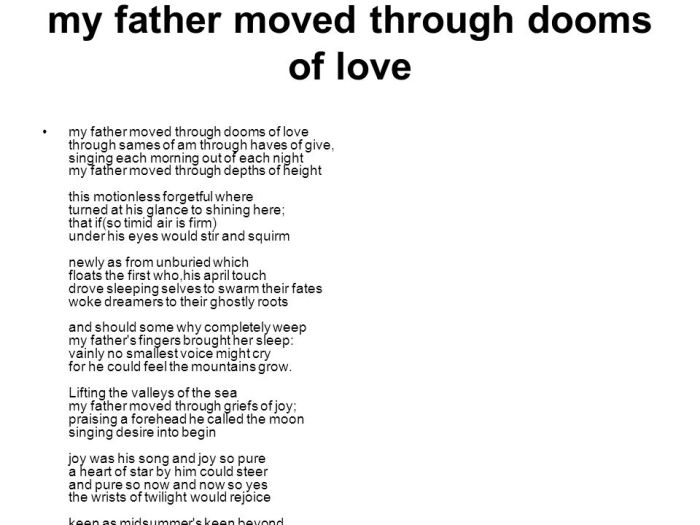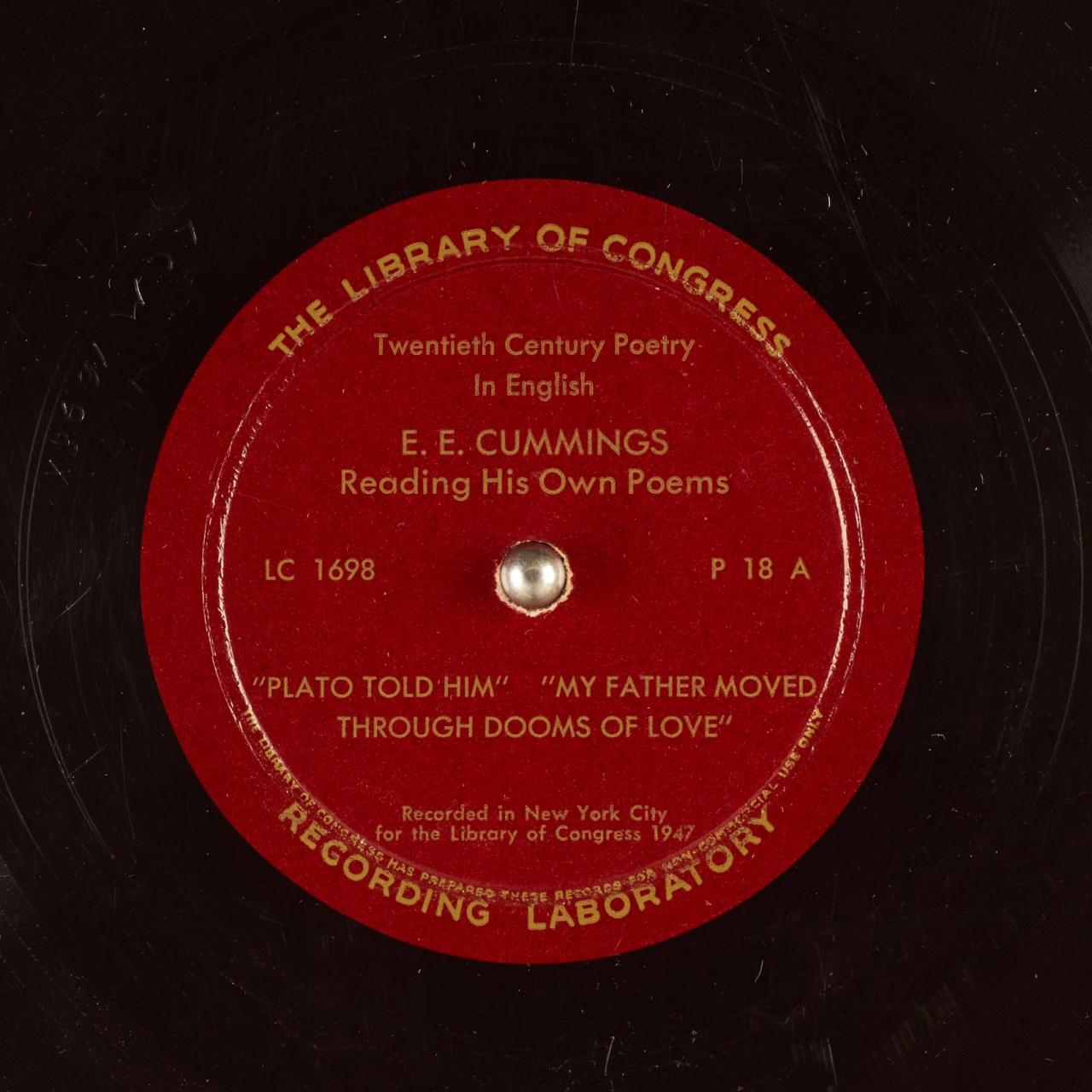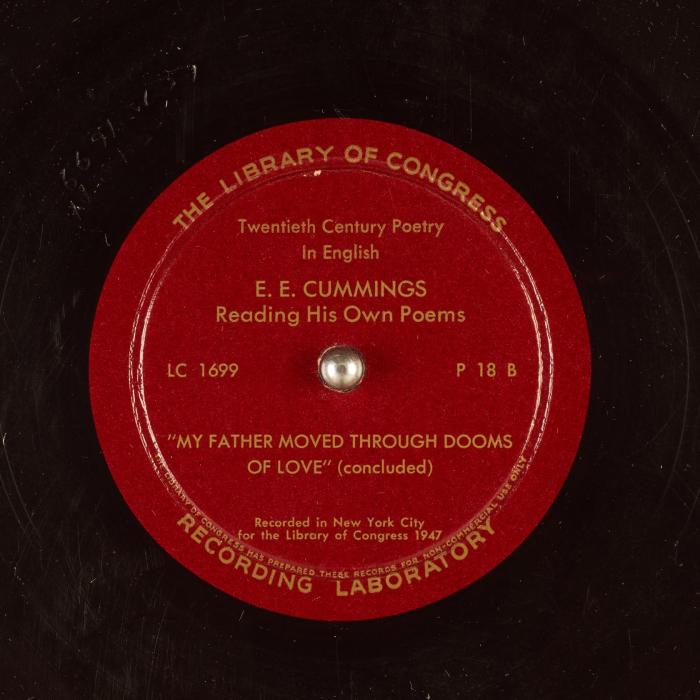In “My Father Moved Through Dooms of Love,” we embark on a poignant exploration of the complexities of love, loss, and the human experience. This phrase, evocative and enigmatic, invites us to delve into its depths, uncovering the layers of meaning that lie within.
Through the lens of literary analysis, autobiographical context, and historical influences, we unravel the significance of “dooms of love,” tracing its impact on the speaker and illuminating its universal truths.
Poetic Interpretation

The phrase “my father moved through dooms of love” can be interpreted literally as a description of a father’s experiences with love. However, it also carries a deeper metaphorical significance.
The “dooms of love” can be seen as the obstacles, challenges, and hardships that one encounters in love. These may include heartbreak, betrayal, and loss. The phrase suggests that the father has faced and overcome these challenges, emerging from them stronger and more resilient.
Similar imagery is found in other literary works, such as Shakespeare’s “Sonnet 116,” which describes love as “an ever-fixed mark / That looks on tempests and is never shaken.”
Autobiographical Context

The phrase “my father moved through dooms of love” may have been inspired by the poet’s own personal experiences with love.
Sylvia Plath’s father died when she was eight years old. This loss had a profound impact on her, and she often wrote about the grief and longing she felt in her poems.
The phrase “my father moved through dooms of love” may be a reflection of Plath’s own feelings about her father’s death. She may have seen him as a victim of love, someone who had been hurt and betrayed.
Historical and Cultural Influences

The phrase “my father moved through dooms of love” was written in the mid-20th century, a time of great social and cultural change.
The traditional roles of men and women were being challenged, and new ideas about love and relationships were emerging.
The phrase “my father moved through dooms of love” may reflect the changing attitudes towards love and relationships that were taking place at the time.
Literary Analysis: My Father Moved Through Dooms Of Love
The phrase “my father moved through dooms of love” is a powerful and evocative image.
The use of the word “dooms” suggests that the father has faced great challenges in love. The alliteration of the “d” sound creates a sense of doom and foreboding.
The phrase is also a metaphor for the human experience of love. Love can be a source of great joy, but it can also be a source of pain and suffering.
Thematic Exploration

The phrase “my father moved through dooms of love” evokes a number of themes, including love, loss, and longing.
The phrase suggests that love is not always easy. It can be a difficult and challenging journey, but it is also a journey that is worth taking.
The phrase also suggests that loss is a part of life. We all experience loss at some point, and it is important to grieve our losses and move on.
Visual Representation
The phrase “my father moved through dooms of love” can be represented in a number of ways.
One way to represent the phrase is through a painting or drawing. The painting could depict the father as a strong and resilient figure, standing amidst the ruins of love.
Another way to represent the phrase is through a poem or song. The poem or song could explore the themes of love, loss, and longing that are evoked by the phrase.
FAQ Section
What is the significance of the phrase “dooms of love”?
The phrase “dooms of love” suggests the destructive and overwhelming nature of love, which can lead to both pain and redemption.
How does the poem explore the theme of loss?
The poem delves into the profound sense of loss experienced by the speaker, exploring the emotional turmoil and emptiness that follows the departure of a loved one.
What is the autobiographical context behind the poem?
The poem is believed to be inspired by the poet’s personal experiences of loss and longing, particularly the death of his father.

